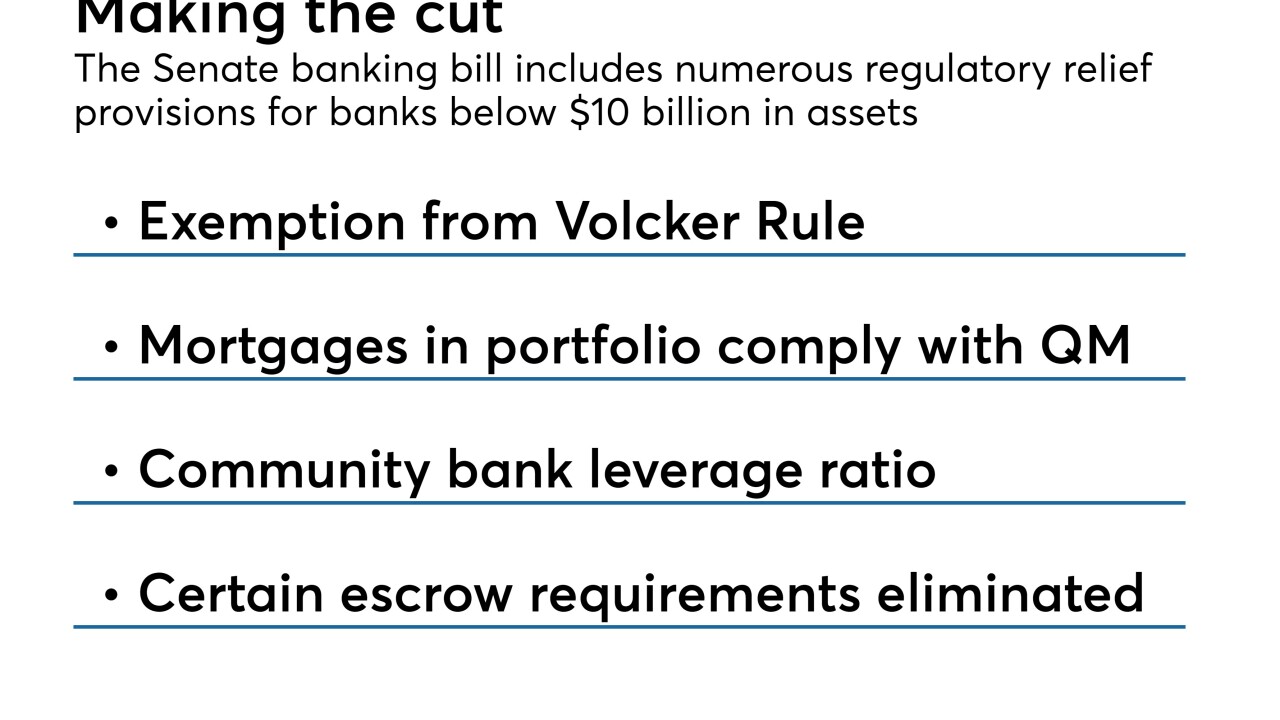-
On quarterly earnings calls set to begin next week, investors will be listening closely to CEO comments for any hints of how banks might deploy excess capital if they are no longer deemed systemically important.
April 2 -
The biggest legacy of the current regulatory relief effort may be the increasing focus on whether organizing banks in supervisory buckets by asset size makes sense. Yet the bill deals with just one of the two big asset thresholds in the law.
March 26 -
While regulatory relief legislation would raise the asset threshold for “systemically important” banks, Federal Reserve Chairman Jerome Powell said the central bank could still apply prudential scrutiny to banks below that new cutoff.
March 21 -
The Senate legislation would weaken scrutiny of large financial institutions, undercutting Dodd-Frank’s mission to provide tailored oversight across the system.
March 5University of Michigan -
The Senate is poised to pass the most substantial bank regulatory relief since the crisis, but any disruption of the post-crisis regime is still eclipsed by how much the bill enshrines Dodd-Frank.
March 2 -
House Chief Deputy Whip Patrick McHenry, R-N.C., said House lawmakers are having discussions with the Senate about ways to go further on rolling back Dodd-Frank before the Senate is expected to hold a floor vote.
February 26 -
Banks may start paying special dividends now that capital levels have improved.
February 23 -
The California company has agreed to buy Grandpoint Capital, a business bank in Los Angeles, for $641 million.
February 12 -
Banks will have to show they can withstand “severely adverse” conditions; the office will be under the direct control of acting director Mick Mulvaney.
February 2 -
The Fed released its stress testing scenarios for banks this year, raising the bar on what constitutes severely adverse hypothetical market conditions.
February 1









